|
|
|
![]() back to "The Grand Tour" index
back to "The Grand Tour" index
Neville Malkin's "Grand Tour" of the Potteries
buildings in Stoke
![]()
![]()
![]()
next: Stoke School of Art
previous: The Arches, Stoke
Churchyard
contents: index of buildings in Stoke
|
No 89 - The
Public Free Library, Stoke
"The
Free Libraries Acts was adopted in 1875 "The Minton's were another influential family of potters, whose name today is well known and associated with finely decorated porcelain and the distinctive floor tiles to be found in countless Victorian houses and which are still produced today. The Minton family gifted several substantial buildings to the community: Herbert Minton endowed the Church of the Holy Trinity in 1842, and in 1852 built day schools behind the church; his brother Rev Thomas Webb Minton built St Thomas's Church in Penkhull also in 1842; Herbert Minton donated £500 to the public baths in London Road in 1856 which became the Herbert Minton Memorial Building after his death 2 years later; the library and Shakespeare institute in London Road was built in 1878 on a site donated by Colin Minton Campbell, with costs subscribed by Thomas William Minton." from: 'Breaking the Mould' |
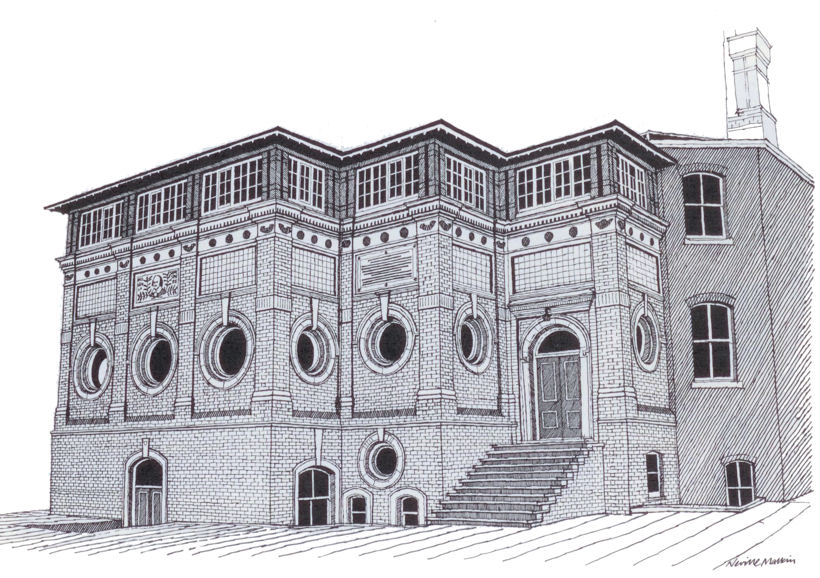
The Public Free Library, Stoke
pen drawing by Neville Malkin - June
1976
designed by Charles Lynan, and built by John Gallimore, of Newcastle
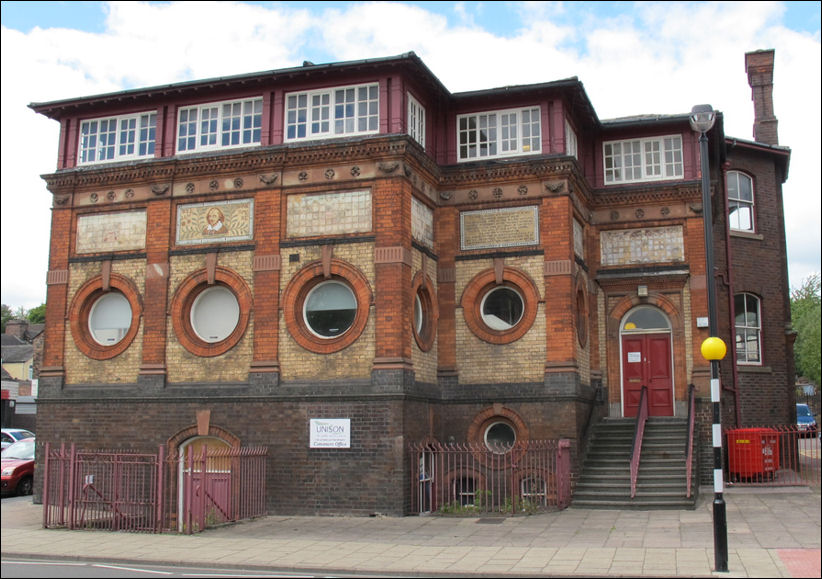
The Public Free Library, Stoke
In 2009 the Stoke Library moved to a
purpose built library in 'Stoke Local Centre' behind the market
The old Library building is now used by the Trade Union UNISON
photo: June 2011
|
"This impressive building in London Road, Stoke, is the Public Free Library. It is built from a variety of local materials, including red and blue brick, terracotta, and tiles. The most interesting features are the circular windows on the upper ground floor and the Shakespeare mosaic on the facade. The first move to form a public library in Stoke was made in 1846 when a Dr. Garner formed a society called the Stoke-upon-Trent Athenaeum. Shortly afterwards the society occupied a wing at the Town Hall and gradually accumulated a fine museum and a library of nearly 3,000 volumes, maintained by members' subscription. After incorporation of the Borough the ratepayers unanimously adopted the Public Free Libraries Act in March, 1875. The council had then to consider how to put this resolution into effect. The sum of £1,308 was promised in donations, and the Athenaeum Committee offered their library and museum, supplemented by a subscription of £150. The Library Committee had no hesitation in accepting these generous gifts. It became necessary to provide a building which could serve both as a museum and a free library. A valuable and central site was offered by Mr. Colin Minton Campbell, M.P.; another donor helped, on condition that a canteen for workpeople was made available in the basement - which, until recently, still possessed the beams with hooks from which sides of bacon were hung. The designer of the building was Charles Lynan, and the contractor, John Gallimore, of Newcastle. The cost was £2,850. The foundation stone was laid on December 10th, 1877, by Lord Wrottesley, Lord Lieutenant of the County, and the building formally opened by Mr. Colin Minton Campbell, on November 7th, 1878, during the Mayoralty of Alderman T. W. Minton, but books were not issued until December 20th, after the compilation of a new catalogue and the classification of the museum. In 1882 the library began experimental opening on Sundays but, after four years, it was stopped, because it was being frequented only by "noisy and destructive children." |
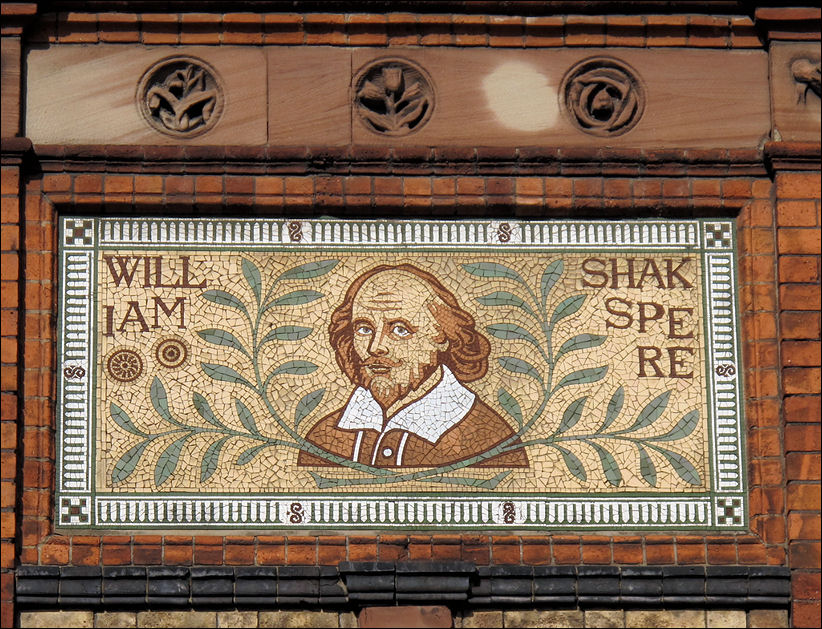
mosaic of Shakespeare on the
facade
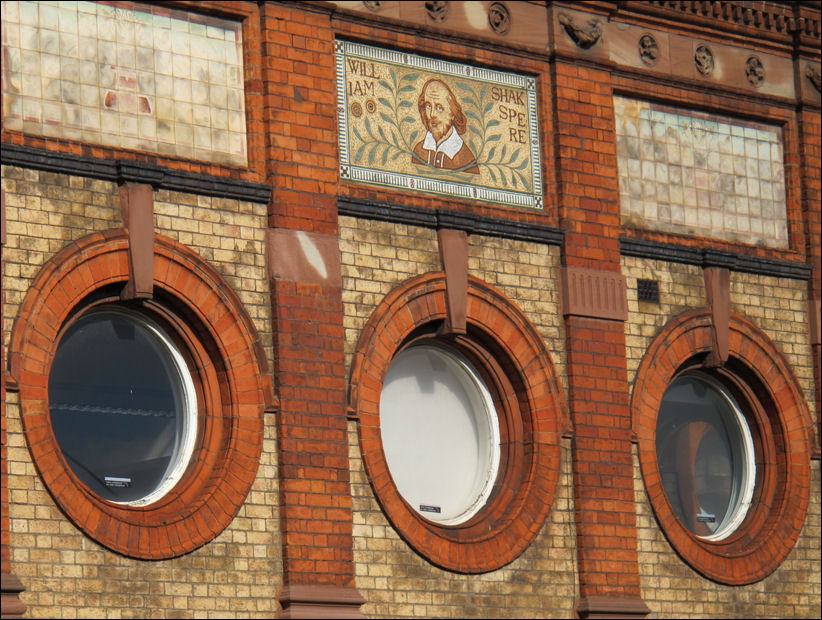
"The most interesting features are the circular windows on the upper ground floor and the Shakespeare mosaic on the
facade"
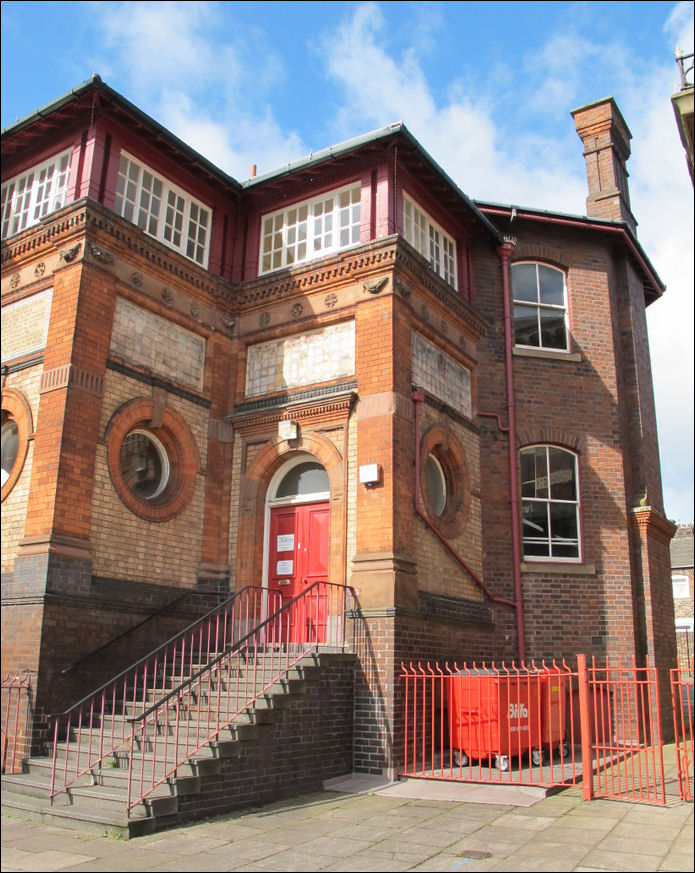
"This impressive building in London Road, Stoke, is the Public Free Library.
It is built from a variety of local materials, including red and blue brick, terracotta, and
tiles"
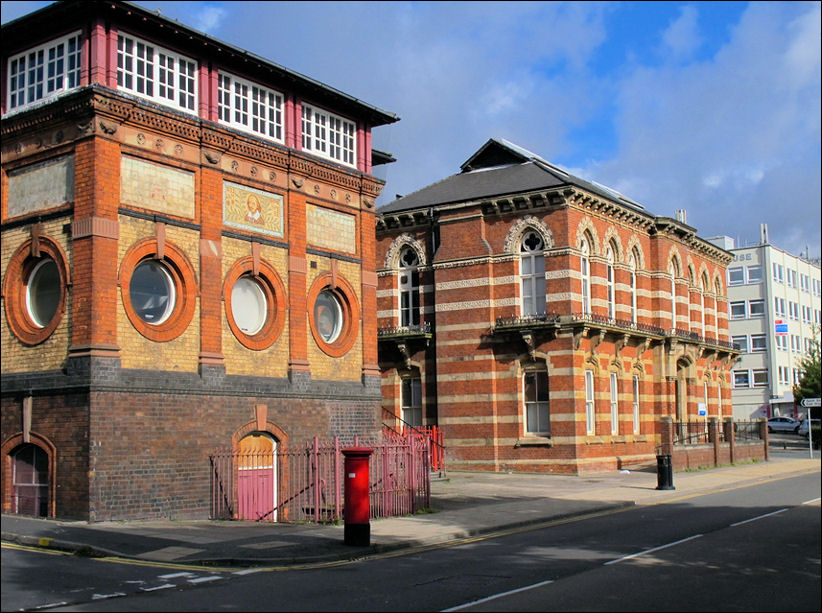
side by side on London Road is
the Public Library (c. 1878) and the School of Art (c.1853)
The white building to the right is London House - a block of shops and
offices - built on the site of the Minton Pottery Works
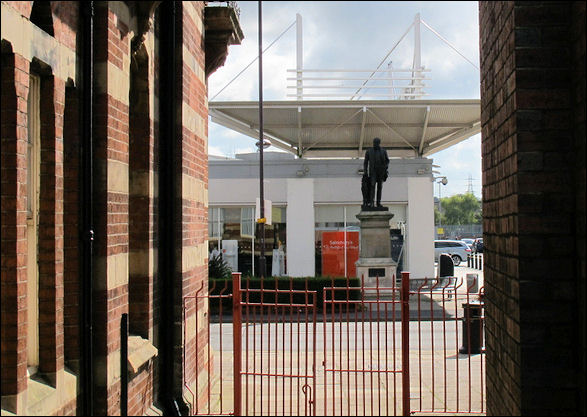
opposite the Library and the School of Art is the statue of Colin Minton Campbell
the
statue is in the front of Sainsbury's supermarket which was built on the site of
Minton's offices & headquarters
the statue was restored by Sainsbury's in 2003 when the store was opened
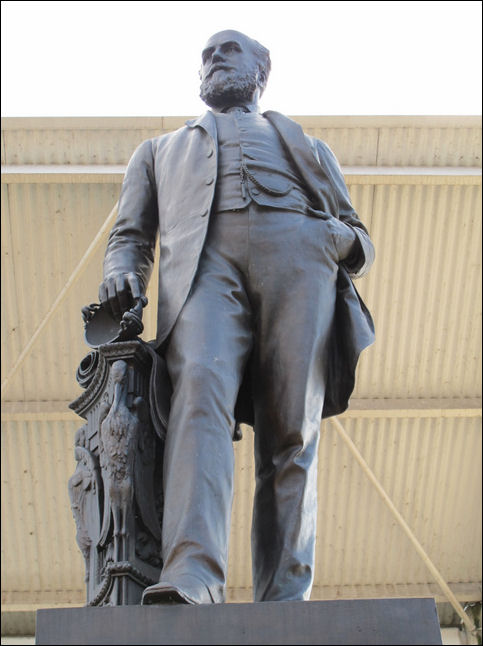
Colin Minton Campbell
The statue was originally situated in
nearby Campbell Square
it was unveiled by the Duchess of Sutherland at a public ceremony in January
1887.
![]()
![]()
![]()
next: Stoke School of Art
previous: The Arches, Stoke
Churchyard
contents: index of buildings in Stoke
|
Related Pages Listed building details for Stoke Public Library also see.. Charles Lynam -architect & historian Colin Minton Campbell - Mayor of Stoke and Pottery Manufacturer 'Libraries gave us power' - each of Stoke-on-Trentís six towns is blessed with its own public library, and each one is a major architectural statement.
|